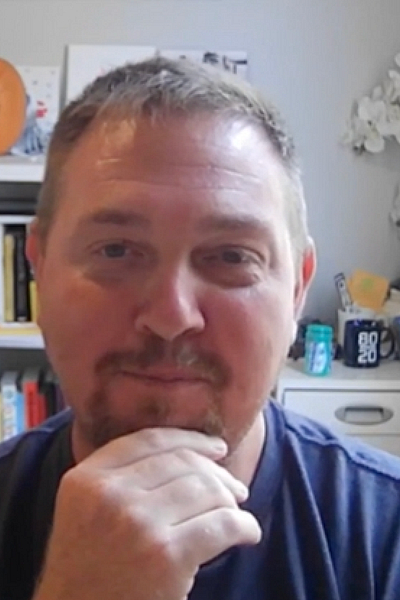Entrepreneurship: Lower Barriers in the AI Era (feat. Brian Samson)
Unlock the strategic advantages of hiring in Latin America, mastering cultural collaboration, and leveraging AI in engineering teams. A deep dive into the future of remote work and talent quality.
In this episode, Krish Palaniappan speaks with Brian Samson, founder of Plugg Technologies, about the evolving landscape of remote work, particularly in the context of nearshoring and offshoring. Brian shares insights on the benefits of hiring talent from Latin America, the cultural nuances that affect remote collaboration, and the importance of a rigorous hiring process to mitigate risks associated with international hiring. The conversation delves into the value of talent beyond cost savings and the challenges faced when hiring from different countries. In this conversation, Brian Samson discusses the evolving landscape of hiring processes, the impact of AI on workforce dynamics, and the future of engineering and software development. He emphasizes the importance of rigorous hiring practices, the efficiencies brought by AI, and the changing composition of engineering teams. The discussion also touches on entrepreneurship in the age of AI, job security, and the need for professionals to adapt to rapid technological changes.
Takeaways
The COVID-19 pandemic has changed perceptions of remote work.
Nearshoring offers advantages like time zone alignment and cultural similarities.
Cost savings are not the only reason to consider nearshoring.
Cultural differences can impact collaboration, especially outside of engineering roles.
A rigorous hiring process is essential to mitigate risks in international hiring.
There is a growing trend of venture capital flowing into Latin American tech ecosystems.
The top talent can be found globally, not just in traditional tech hubs.
Fake candidates are becoming more prevalent, necessitating tighter screening processes. They don’t check references.
AI is bringing a lot of efficiencies.
The barrier to entry just keeps dropping.
There is no such thing as a safe job.
The composition of an engineering team is going to change dramatically.
You need to understand engineering because you’re building software.
The bar for perfection is still there.
The pace of change is much, much faster.
You can vibe code and the business person can take it to a certain point.
The future of software development teams will look very different.
Podcast
Summary
🌎 Brian’s Background & Business Focus
Former head of talent in SF tech
10+ years operating in Latin America
Plug Technologies founded in 2022
Focus: Matching U.S. companies with Latin American tech talent
Value: Same or similar time zones → better collaboration & cultural proximity
🧠 Offshoring vs Nearshoring vs Onshoring (Key Definitions)
Outsourcing: Contracting work outside your core team
Offshoring: Hiring across oceans (e.g., US → India)
Lower cost, follow-the-sun model
Nearshoring: Hiring in nearby countries, same or close time-zone (e.g., US → LATAM)
Cost savings + real-time collaboration
Onshoring: Hiring in your country
Shared culture, fewer risks, highest cost
💸 Labor Arbitrage & Value Equation
Offshoring/nearshoring isn’t only about cost reduction
Value focus:
Example: $200K US engineer → $100K LATAM engineer
~50% savings with maybe 10–20% difference in quality
Net value gain ~30%
💼 Cultural & Skills Considerations
LATAM talent described as:
Resourceful, gritty, clever, hardworking, loyal
Result of real-world economic pressures & scrappy startup environments
“Top talent exists everywhere — location is less relevant now”
👀 Trust, Vetting & Hiring Challenges
Global hiring challenge: fake candidates & misrepresentation
Rise in impersonation cases with remote interviews
Solution: rigorous hiring process
structured interviews
video calls
references
background checks
🤖 AI’s Impact on Talent Models
AI lowers cost of building software
Teams can be smaller & more efficient, wherever they’re located
Future = nearshoring + AI → double efficiency advantage
Core leadership team still valuable close-by
Supplemental talent can be global
🚀 Entrepreneurship in the AI Era
Lower barriers to start companies than ever
Offshoring + nearshoring + AI → “multi-order efficiency boosts”
More global entrepreneurs, less need for huge seed capital
👷 Future of Engineering & Workforces
Composition of engineering teams will change
Fewer engineers needed, but higher-quality roles
Rise of lean teams
Mid-level managers at risk (trend already visible in Big Tech)
ICs and senior leaders remain crucial
🎓 Education & Young Talent
Universities lag behind tech evolution
Students must self-learn AI and modern tools
Product-thinking engineers become more valuable
🔮 Predictions on AI & Jobs
AI won’t replace developers wholesale yet
But team structure, workflow, and required knowledge will reshape
“Everyone must re-learn how to build software”
🎯 Key Takeaways
Nearshoring + AI = massive competitive edge
Top talent is global; hiring rigor matters
Mid-management roles will shrink
Entrepreneurship cost dropping → more builders
Engineers & founders must adapt fast to AI-driven workflows


